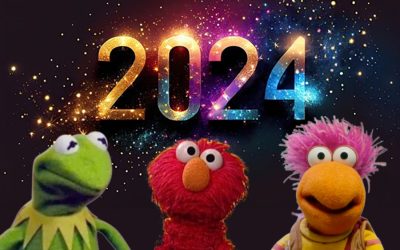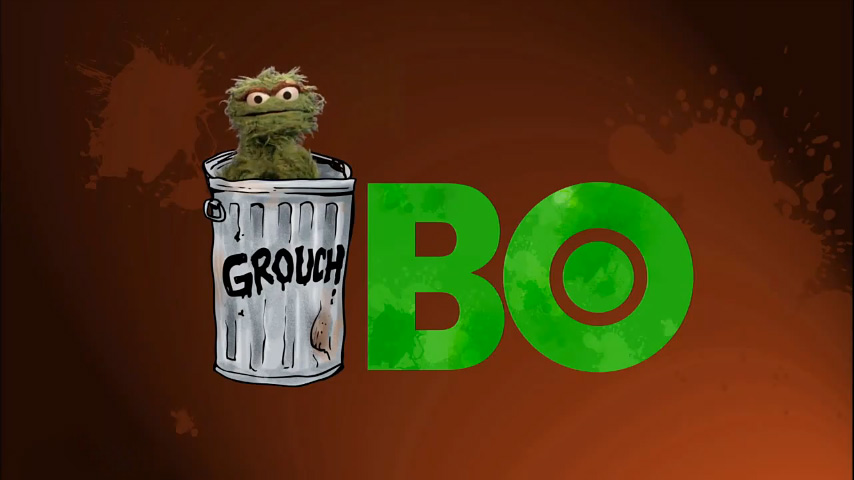Hi. I’m J.D., and I went to college.
Ever since then, I’ve had this little problem: I can’t stop applying critical lenses to things! Argh! In consequence, this article gets a little heady and academic, and it ultimately leads to some disquieting conclusions. If that’s not what you’re into, feel free to skip it. I don’t mind.
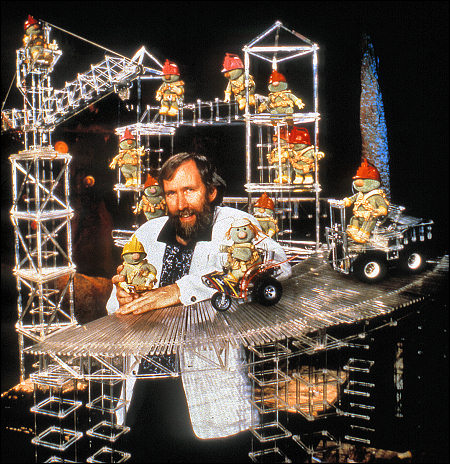
You know, it’s funny… Jim Henson produced Fraggle Rock, and it was broadcast in a whole bunch of countries, yet we still don’t have world peace. How is that possible? Could it be that we’ve been taking its mission to “bring peace to the world” too literally? No, no, Jim probably would have wanted this show to be judged solely by whether or not it ended all violence for the first time in human history. Might Jim’s notion that conflict is caused by misunderstanding rather than class struggle and institutional violence be a wee bit naive? No, no, surely the guards in the Stanford Prison Experiment were just having a hard time understanding the inmates’ point of view. Maybe I have to accept that it’s unrealistic to expect a puppet show to explain how the world actually works, regardless of whether or not it’s for a Bo Burnham special.
Nay, I shan’t believe it! Fraggle Rock is a model of the utopia we can have if we only try. It simply must contain all the answers to the world’s problems! I feel like I have a good understanding of Fraggle culture, but I haven’t given much thought to the other side of Fraggle society: its economy. I scratched the surface in my recent article about the myriad of ethics lessons we can learn from “The Preachification of Convincing John”, but I have even greater ambitions now. I believe that by examining each of the features of the Fraggle Economy, maybe we can finally actualize Jim Henson’s dream of world peace.
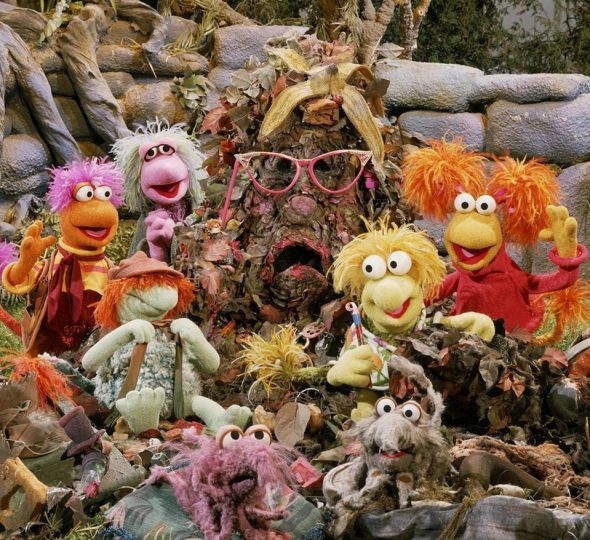
Part I: Money
They don’t have any! Fraggle Rock truly is a moneyless society, and it’s hard to study an economy without money. They do, however, seem to have commodities. They’re wearing clothes and eating food, aren’t they?
The only reason we might not consider these items “commodities” is that they don’t seem to be traded in any sort of market. It’s hard to study an economy without a market! I get the sense that Fraggles get their clothes by making them for themselves, getting them from friends, or getting them from a Fraggle whose job for thirty minutes a week is making clothes. There isn’t much of a place for money in this equation.
On the other hand, “money” is the word for the universal commodity that sets the standard of value to which all other commodities are compared. The go-to money commodity for us silly creatures has historically been gold, but if anything in Fraggle Rock is as essential to the Fraggle economy as money is in ours, it’s radishes. Radishes are all of it. They’re the commodities, the capital, and the currency, all rolled into one. Therefore, the formula for Fraggle capital can be expressed thusly:
R = R = R
And that’s how math works. The Fraggle economy, then, consists of the different species’ relations to The Radish.
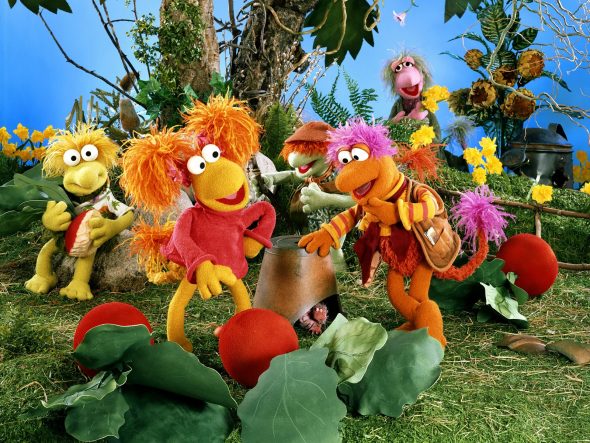
Part II: Class
They don’t have any class! Ha!
I kid. We know the three classes: Gorgs, Fraggles, and Doozers. Let’s examine the Doozers first. It’s honestly a little too convenient that this economy has a working class that loves nothing more than the activity of labor. It would be all too easy for any of us to live in a utopia free of class struggle if there was a large working class eager to do as much of the work as they could for its own sake. It’s no wonder they’re able to solve all the conflicts in this world over the course of a few years – it’s all an idyllic, bourgeois fantasy!
Although, on second thought, there is one little wrinkle in all this: the Doozers don’t actually do much. They do mine a few radishes, but for the most part, their job is to turn radishes (a food Fraggles like to eat) into Doozer sticks (a food Fraggles like to eat, now in a different shape). The Fraggles could probably get by without this, and the Gorgs certainly could, so the function of the Doozers in this economy is surprisingly minimal. Further, their product is the sticks themselves – the sticks are the commodity that the consumer cares about – so they don’t need to spend all this time building the towers. The construction of towers functions to give the Doozers the aesthetic of being hard workers, while in actuality they merely repackage and distribute a commodity already available to the Fraggles (the radish). This means the Doozers are, all things considered, secretly the middle class.
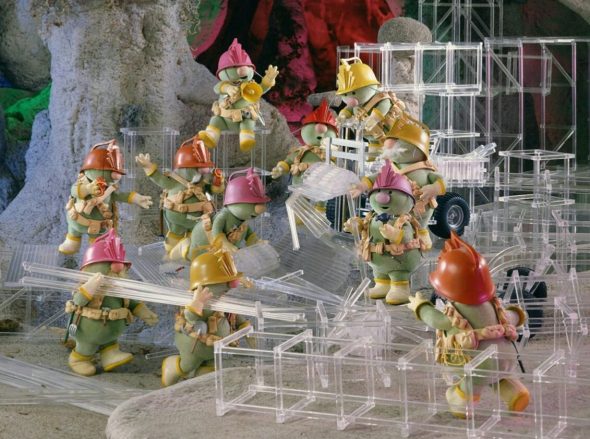
The Gorgs are the obvious ruling class… except they aren’t really. They don’t use any resources produced by the Fraggles or Doozers, instead living largely self-sufficient lives. In much the same way that the Doozers perform the working class without being the working class, the Gorgs likewise perform ruling the world while influencing very little. They do seem to have a monopoly on violence in the Fraggle world, so one could argue that they’re the state, but socially and economically, they don’t control much.
Then there’s the Fraggles. They think of themselves as workers because they work 30 minutes a week, but that’s nothing. They mostly stick to jobs they like anyway, like Boober’s laundry and Red’s swimming. They can get away with this lifestyle because they don’t need to produce anything in this economy – they are only useful as consumers of Doozer towers. In a way, the Fraggles are actually the ruling class, getting by on the wealth of radishes they steal from the Gorgs, leaving Junior to do all the labor. As a matter of fact, all three of the species get their resources by exploiting Junior Gorg, who produces all the essential commodities and all the wealth, and does all the important labor. That means…
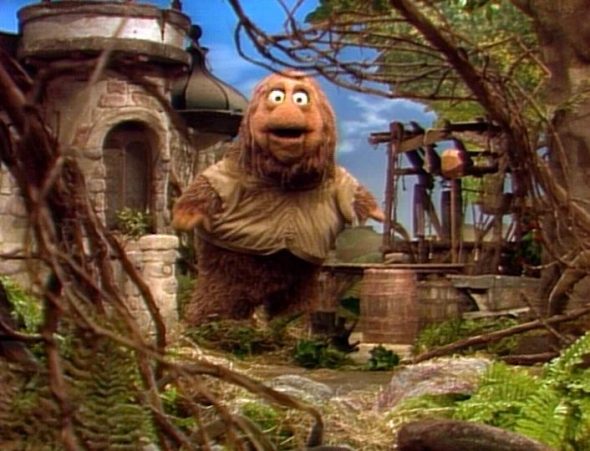
Part III: Well Shoot, the Whole Proletariat Is Just Junior
Congratulations! You’ve made it to the totally unhinged part of this article.
Junior Gorg is the working class; the working class is Junior Gorg. This entire economy is built on the exploitation of Junior. As his name suggests, he is a child. This entire economy is built on the exploitation of child labor. As far as we can tell, he is paid no wages for his work. Instead, he gets to live on the property he works (not that he has much of a choice) and there he is regularly abused by the owner of the land. There’s a word for this dynamic.
To be blunt, this entire economy is built on the exploitation of child slave labor.
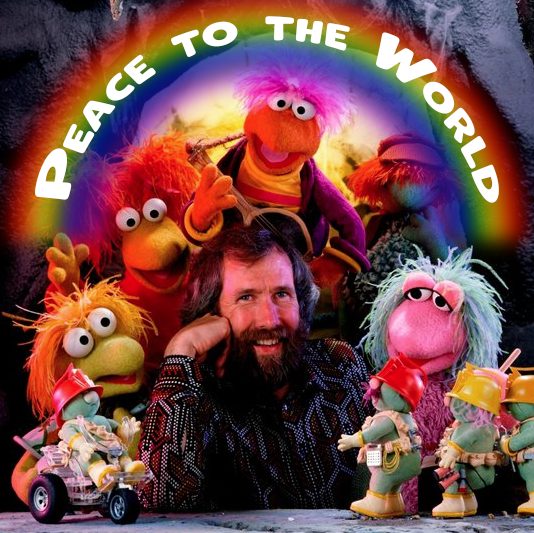
I am reminded of the Hugo Award-winning short story “The Ones Who Walk Away from Omelas” by Ursula K. Le Guinn. This 1973 work of philosophical fiction describes a lovely, happy city like something out of a fairy tale where it’s a party all the time, and all of the citizens enjoy perfectly healthy, joyous lives, except one. One child must live in absolute misery, endlessly suffering in a cell without sunlight, so that everyone else may live in bliss. The story is designed to present a philosophical conundrum: is it ethical to make one person suffer if it will relieve everyone else of suffering? The idea came from earlier philosophical thought experiments by William James and Fyodor Dostoyevsky, and Dostoyevsky was inspired by the crucifixion of Jesus.
Now, Junior Gorg is not the Messiah, but he is also not a very naughty boy. He’s the guy who got stuck with the job of working the land so nobody else has to. Back to the Rock tries to scoot around this issue by giving Junior a love of gardening, which is very convenient, but the point is that he’d have to do the work anyway. That’s how the Gorg Economy works. It’s all contingent on his toiling.
The neat part is that it doesn’t stay that way forever. The series wrap-up episodes of the original Fraggle Rock depict Junior Gorg gaining class consciousness, taking the crown, and abolishing it. The first season of the current series ends with Junior taking a stand against his father and smashing the fountain made in his father’s image. It goes without saying that seeing a boy attack the image of the paternal with a phallus suggests that he is in love with his mother, but I’ll save the Freudian critical lens for another day. The point is that this cycle of production ends with revolution!
Of course, as previously explained, the Gorgs like to think that they’re the ruling class, but they aren’t really, so this revolution isn’t real. It’s all for naught. Junior’s labor will still be exploited by the ruling class of the Fraggles for as long as there are Fraggles. With that in mind, I think I can finally see what Fraggle Rock was getting at all along. It was never about dancing your cares away or living in perfect harmony. It was about the end of Late Stage Radishalism. It was shining a light on the path to liberation. Jim Henson was telling us that there is a way for the working class to be free, and that way is, simply put… thump the Fraggles.
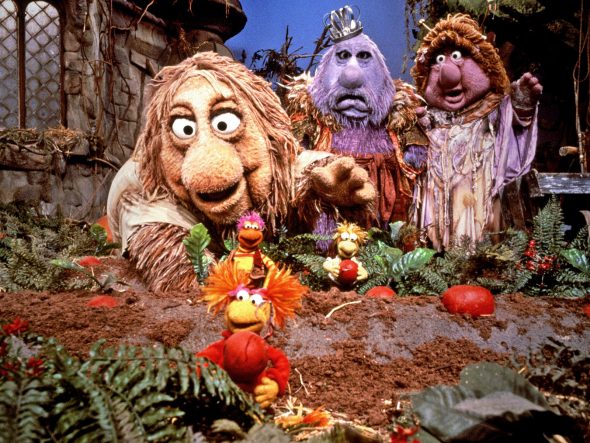
Join the movement! Text #ThumpTheFraggles to a thousand of your closest friends.
Click here to hate me forever for ruining Fraggle Rock on the ToughPigs forum!
By J.D. Hansel


